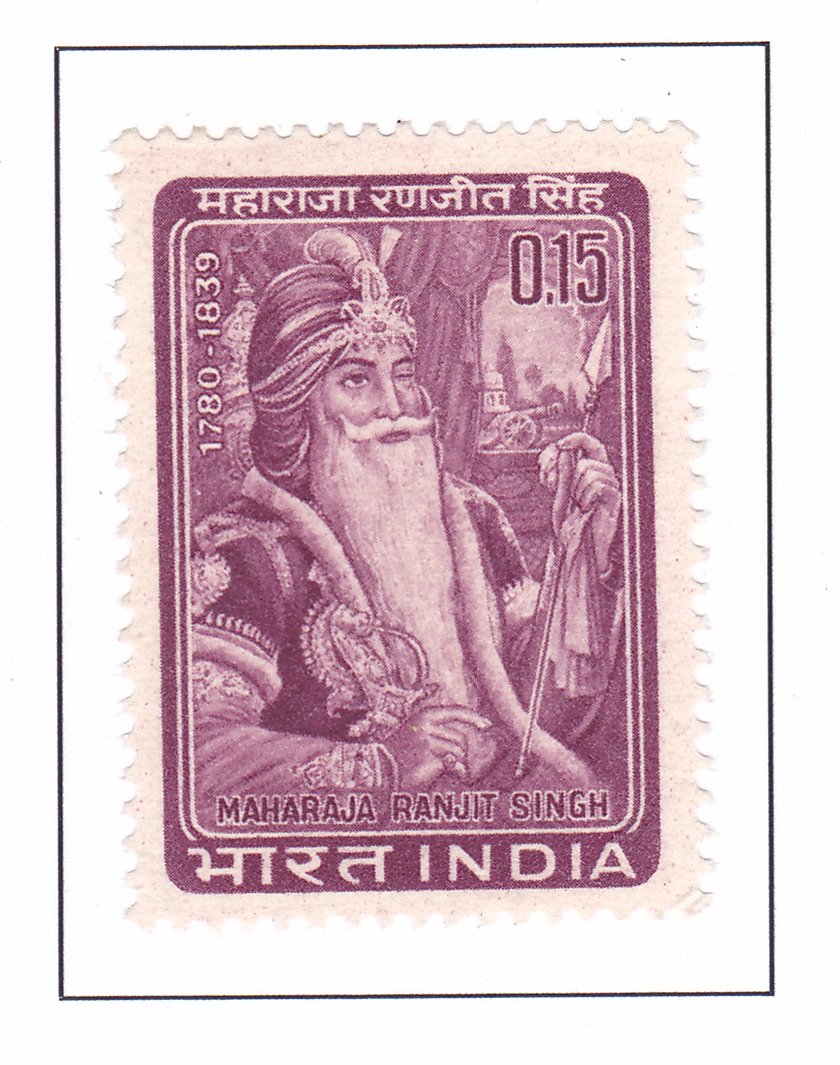Maharaja Ranjit Singh 1780-1839

Technical Data
| Date of Issue | June 28, 1966 |
|---|---|
| Denomination | INR 0.15 |
| Quantity | 2,000,000 |
| Perforation | Purple |
| Printer | Security Printing Press, Nashik |
| Watermark | No Watermark |
| Colors | comb 14 x 13½ |
| Catalog Codes |
Michel IN 413 Stamp Number IN 436 Yvert et Tellier IN 208 Stanley Gibbons IN 534 |
| Themes | Commemoration | Famous people | Heads of State | Men |
Maharaja Ranjit Singh, born in 1780 AD, stands as a towering figure in Indian history, rightfully hailed as the founder and architect of secularism in India. Born into humble beginnings after his father’s untimely demise when he was just eleven, Ranjit Singh faced immense challenges from his youth. In a time of internal strife and external threats, he rose to the occasion, wielding the sword from a tender age to protect Punjab from numerous adversaries.
Despite his lack of formal education, Ranjit Singh’s practical wisdom and military prowess enabled him to unify a fragmented populace and establish a formidable kingdom in northern India. His remarkable leadership saw the creation of a powerful military force, unprecedented in Indian history, which brought traditional invaders to their knees and extended the Sikh Empire to the strategic Jamrud, securing control over the Khyber Pass.
Notably, Ranjit Singh’s reign was marked by a remarkable absence of cruelty or oppression. He nurtured a sense of nationalism among his subjects, transcending religious divides and emphasizing the importance of unity over sectarian affiliations. Justice was dispensed impartially, regardless of religious background, and merit and loyalty were the hallmarks of his administration.
In Ranjit Singh’s court, diversity was celebrated, with key positions held by individuals from various religious communities, exemplifying his commitment to inclusivity and secularism. His humility, refusal to claim divine rights, and recognition of talent endeared him to his people, fostering a loyal and capable cadre of administrators.
Maharaja Ranjit Singh’s passing in June 1839 marked the end of an era, but his legacy endured, leaving an indelible mark on Indian history. His reign heralded the dawn of a modern nation, laying the foundation for a secular state that transcended communal divisions. As India continues its journey towards equality and inclusivity, the homage paid by the Posts and Telegraphs Department through a commemorative postage stamp on his death anniversary serves as a fitting tribute to this extraordinary leader and statesman.
